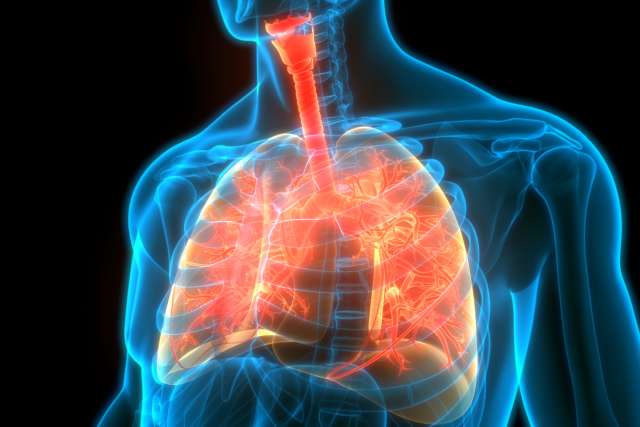Dear Doctors: After a thoracotomy for lung cancer surgery, I had pain and tingling, along with tightness and spasms, in my midriff. I was told it would ease, but it hasn't. It's been a year, and the spasms are sudden and severe. CT scans are normal, and meds and physical therapy help only a little. What is going on?
Dear Reader: In certain cases of lung cancer, surgery is a treatment option. This may mean removing a small portion of the lung, an entire lobe or the lung itself. Sometimes, surgical targets in the upper chest and abdomen can be reached using minimally invasive procedures. But when that isn't possible, a surgery known as a thoracotomy becomes necessary. It is used when a surgeon needs direct access to an area in the upper or middle chest. It entails making an incision between the ribs, about 6 inches below the shoulder blade. The muscles and ribs are then maneuvered in a way that allows the surgeon to both see and reach the target tissues.
Thoracotomy is a major surgical procedure. In gaining access to the interior of the basketlike structure of the rib cage, the surgeon cuts through muscle, connective tissues and a complex network of nerves. Known as the intercostal nerves, they radiate throughout the rib cage and abdomen.
While healing from the procedure, patients experience pain, discomfort and tightness at the surgical site, and also often along the ribs and muscles that were moved to create a surgical field. This often lasts for several weeks. For some patients, however, these symptoms persist for many months. This is known as post-thoracotomy pain syndrome. Symptoms can include sensations of itching, prickling, burning or tingling, increased sensitivity to touch or pressure, and pain that can range from dull and throbbing to sharp and sudden.
As has occurred in your case, some patients experience ongoing tightness and spasms in the muscles of the rib cage and midriff, which can become quite intense. The name for this is intercostal neuralgia. These may be triggered by movement that involves the torso -- such as twisting, turning or sneezing -- or they may occur spontaneously. The reasons why are not always clear, but damage to the intercostal nerves is believed to play a role. Potential causes include ongoing inflammation, the formation of scar tissue that may pinch or put pressure on the intercostal nerves, or damage to the nerves themselves.
Unfortunately, nerve pain does not respond well to nonsteroidal anti-inflammatories. Other treatment options include the use of neuropathic pain medications, certain antidepressants and periodic injections of nerve blocks. When a nerve block identifies a specific neural pathway involved in this type of pain, a treatment known as radiofrequency ablation may become an option. It's a procedure that targets specific tissues using the thermal energy produced by radio waves. Radiofrequency ablation has been used successfully to manage nerve pain in shingles, herpes and back pain. It has also shown promise in managing some cases of intercostal neuralgia. Your doctor will be able to advise you if this may be an option for you.
(Send your questions to [email protected], or write: Ask the Doctors, c/o UCLA Health Sciences Media Relations, 10960 Wilshire Blvd., Suite 1955, Los Angeles, CA, 90024. Owing to the volume of mail, personal replies cannot be provided.)





